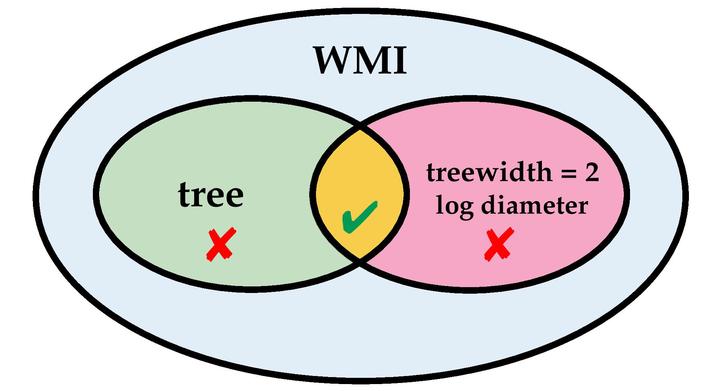Probabilistic Inference with Algebraic Constraints: Theoretical Limits and Practical Approximations
 Tractability of WMI Problems
Tractability of WMI ProblemsAbstract
Weighted model integration (WMI) is a framework to perform advanced probabilistic inference in hybrid domains, i.e., on distributions over mixed continuous-discrete random variables and in the presence of complex logical and arithmetic constraints. In this work, we advance the WMI framework on both the theoretical and algorithmic side. First, we trace the boundaries of tractability for WMI inference in terms of two key properties of a WMI problem’s dependency structure, sparsity and diameter. We prove that exact inference is only efficient if that structure is tree-shaped with logarithmic diameter. While this result deepens our theoretical understanding of WMI it hinders the practical applicability of exact WMI solvers to large problems. To overcome this, we propose the first approximate WMI solver that does not resort to sampling, but performs exact inference on an approximate model. Our solution iteratively performs message passing in a relaxed problem structure to recover lost dependencies. As our experiments show, it scales to problems that are out of the reach of exact WMI solvers while delivering accurate approximations.